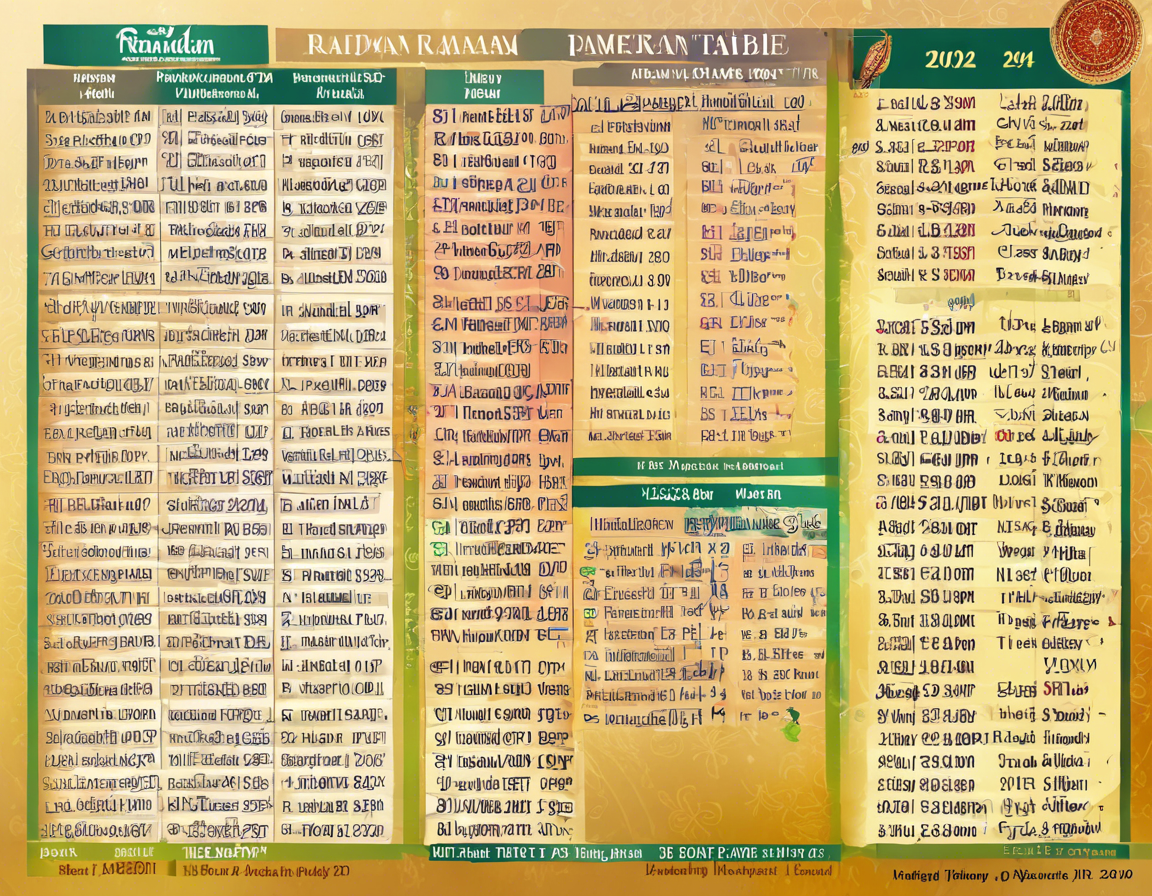Ramadan, the ninth month of the Islamic lunar calendar, is a holy month of fasting, prayer, reflection, and community for Muslims around the world. In 2024, Ramadan is expected to begin on Saturday, 23rd March, in Pune, India, subject to the sighting of the moon. This period is significant for Muslims as it commemorates the first revelation of the Quran to Prophet Muhammad.
Importance of Ramadan in Islam
Ramadan holds great spiritual significance in Islam. It is a time for Muslims to focus on their faith, practice self-discipline, and strengthen their relationship with Allah. Fasting from dawn until sunset is one of the Five Pillars of Islam and is obligatory for all adult Muslims, with exceptions for the elderly, sick, pregnant, nursing, and menstruating women.
Daily Routine During Ramadan
During Ramadan, Muslims follow a specific daily routine that revolves around fasting, prayer, and breaking the fast at sunset. The day begins with suhoor, a pre-dawn meal before the fast begins. This is followed by Fajr prayer at dawn. Throughout the day, Muslims engage in acts of worship, reflection, and charity.
Iftar and Taraweeh Prayers
At sunset, the fast is broken with a meal called iftar. Muslims traditionally break their fast with dates and water before moving on to a larger meal. After iftar, Muslims perform the Maghrib prayer, followed by the optional Taraweeh prayers at night. These prayers are held in congregation at the mosque and involve recitation of the Quran.
Community and Charity during Ramadan
Ramadan is not only a time for personal reflection but also a time for community and charity. Muslims are encouraged to increase their acts of kindness, generosity, and charity during this month. Many mosques and organizations organize iftar meals for the community, and individuals contribute to various charitable causes.
Eid al-Fitr
The end of Ramadan is marked by the celebration of Eid al-Fitr, a festival that starts with a special prayer service at the mosque and is followed by feasting, gift-giving, and visiting friends and family. It is a time of joy and thanksgiving, as well as an opportunity for Muslims to strengthen bonds within the community.
Frequently Asked Questions (FAQs) about Ramadan
-
Is it mandatory for all Muslims to fast during Ramadan?
Fasting during Ramadan is obligatory for all adult Muslims, with exceptions for certain groups such as the elderly, sick, pregnant, nursing, and menstruating women. -
Can children fast during Ramadan?
Children are not required to fast until they reach puberty. However, some children may choose to fast for part of the day to practice and experience the significance of Ramadan. -
What is the significance of Laylat al-Qadr during Ramadan?
Laylat al-Qadr, or the Night of Power, is considered the holiest night of the year in Islam. It is believed to be the night when the Quran was first revealed to Prophet Muhammad. -
Can non-Muslims participate in Ramadan activities?
Non-Muslims are welcome to participate in Ramadan activities, such as community iftar meals and charity initiatives, as a way to learn more about the Islamic faith and promote interfaith understanding. -
Are there any health tips for fasting during Ramadan?
It is important for fasting individuals to stay hydrated, eat balanced meals during non-fasting hours, get an adequate amount of sleep, and consult a healthcare professional if they have any health concerns. -
What is the significance of Eid al-Fitr in Islam?
Eid al-Fitr, or the Festival of Breaking the Fast, marks the end of Ramadan and is a time for celebration, gratitude, and acts of charity within the Muslim community. -
How can Muslims make the most of Ramadan?
Muslims can make the most of Ramadan by increasing their acts of worship, seeking forgiveness, reading the Quran, attending mosque prayers, engaging in charity, and strengthening family and community ties. -
What is the best way to support fasting individuals during Ramadan?
Supporting fasting individuals during Ramadan can involve being understanding and considerate of their religious obligations, joining them in iftar meals, offering to help with household chores, or volunteering for charitable activities. -
How do different cultures celebrate Ramadan?
Ramadan is celebrated in diverse ways across cultures, with variations in traditional foods, customs, and regional practices. Despite these differences, the core principles of fasting, prayer, and community remain central to the observance of Ramadan. -
What is the significance of Zakat during Ramadan?
Zakat, or charitable giving, is an important aspect of Ramadan. Muslims are encouraged to fulfill their obligation of Zakat during this month by giving to those in need and supporting charitable causes.
Ramadan is a time of spiritual growth, self-discipline, and community bonding for Muslims worldwide. By observing the rituals and traditions of this holy month, Muslims seek to strengthen their faith, foster compassion and generosity, and deepen their connection to Allah.
